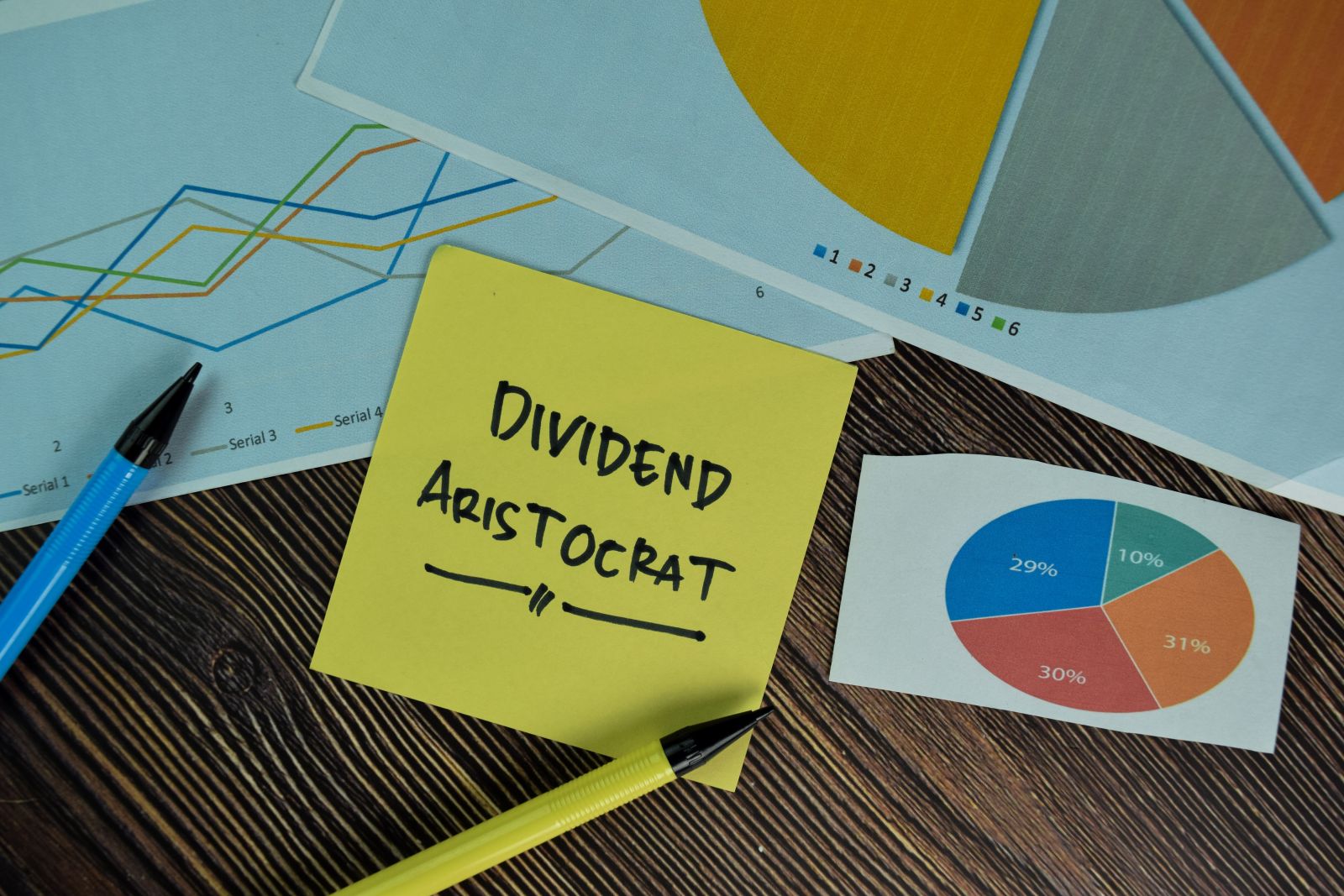
Dividend stocks are shares of companies that pay out a portion of their earnings to shareholders as dividends. Companies that increase their dividends over time are especially appealing to retirees and income-focused investors.
Midstream energy companies Enterprise Products Partners (EPD) and Enbridge (ENB) have proven to be credible dividend stocks - not only by paying a high yield, but also by consistently increasing dividends. Enterprise has a forward dividend yield of 6.6%, while Enbridge offers 6.1%, compared to the energy sector average of about 4.2%.
Both companies have earned the title of Dividend Aristocrats, which is given to S&P 500 Index ($SPX) companies that have increased their dividends for at least 25 consecutive years. These stocks are sought-after by investors because a company that pays and consistently increases dividends typically indicates strong cash flow, profitability, and sound management.
While these mature companies have moderate growth potential, they are better suited to investors seeking consistent income and exposure to the energy infrastructure sub-sector.
Dividend Stock No 1: Enterprise Products Partners
Enterprise Products Partners (EPD) has long been a favorite among income-focused investors due to its high and consistent distribution yield. With its vast portfolio of pipelines, storage facilities, and processing plants, EPD plays a critical role in transporting and storing oil, natural gas (NGF25), and petrochemical products.
So far this year, EPD shares have gained 22.8%, compared to the S&P 500's gain of 24.7%.

EPD manages more than 50,000 miles of pipelines and nearly 300 million barrels of storage capacity for natural gas liquids (NGLs), crude oil (CLF25), petrochemicals, and refined products. The majority of EPD's revenue comes from fee-based contracts, which ensure predictable cash flows and allow the company to pay consistent dividends.
In the third quarter, distributable cash flow (DCF) increased 5% to $2 billion. Net income also rose 8% to $0.65 per share. Consistent growth in earnings and cash flows also allowed the company to increase its quarterly dividend by 5.0% to $0.525 per share in the third quarter. The company has been increasing dividends for the past 27 years.
As a master limited partnership (MLP), EPD’s forward dividend payout ratio is relatively high, but sustainable. Analysts predict EPD’s earnings could increase by 6% in 2024, followed by another 6.8% in 2025.
The company also generated an adjusted free cash flow of $943 million. A hefty free cash flow balance should also help the company reduce its debt, as its debt-to-equity ratio is quite high at 1.09.
Overall, Wall Street considers EPD stock to be a "strong buy." Out of the 15 analysts who cover EPD, 12 recommend a "strong buy," one says it’s a “moderate buy,” and two recommend a "hold." The average price target of $33.94 set by analysts represents a potential 5% increase from current levels. Its high target price of $37 suggests the stock could climb by another 14.4% over the next 12 months.

Dividend Stock No 2: Enbridge
Enbridge (ENB), one of North America's leading energy infrastructure companies, has long been a favorite of dividend-oriented investors. Aside from pipelines, its diverse portfolio includes natural gas utilities, storage facilities, and renewable energy projects. The company generates predictable cash flows due to its fee-based business model, which isn’t heavily exposed to volatile commodity prices.
ENB stock has gained 20.7% year-to-date, compared to the overall market.

In the third quarter, adjusted EBITDA (earnings before interest, tax, depreciation, and amortization) increased by 8% year on year to $4.2 billion. The company's distributable cash flow (DCF), which it uses to pay dividends, stood at $2.6 billion, the same as the previous year. However, adjusted earnings per share were lower at $0.55, compared to $0.62 in Q3 2023.
For the full year 2024, Enbridge intends to achieve the high end of its EBITDA target of $17.7 billion to $18.3 billion. DCF could fall in the $5.40 to $5.80 range per share.
Enbridge has made several strategic acquisitions to improve its natural gas transmission and storage capabilities, thereby strengthening its market position. Recently, the company completed the acquisition of three U.S. natural gas utilities announced in September last year.
CEO Greg Ebel believes these three are an excellent fit for “Enbridge's existing low-risk business model, offer reliable cash flow, and come with embedded quick-cycle growth opportunities.”
It also completed the acquisition of Public Service Company of North Carolina from Dominion Energy (D) for $3.2 billion. Furthermore, it has collaborated with Microsoft (MSFT) to use artificial intelligence (AI) to "drive significant advancements in safety, emissions reduction, and asset optimization across its operations."
While these acquisitions and investments will increase future earnings and dividends, they also contribute to high debt levels. Its debt-to-equity ratio is high at 1.39, indicating that the company relies heavily on debt to fund its operations. However, its interest coverage ratio of 3.07 indicates that the company can repay the interest on its debts. Analysts predict a 3.4% drop in earnings in 2024, followed by an 8.6% increase in 2025.
For long-term investors, Enbridge offers a mix of income stability and moderate growth potential. Enbridge has increased its dividends for the past 29 years, though its elevated payout ratio is worth noting.
Overall, Wall Street has rated Enbridge stock a "moderate buy.” Of the 16 analysts in coverage, five recommend a "strong buy,” two rate it a "moderate buy,” eight say it’s a “hold,” and one rates it a “strong sell.” Enbridge stock has surpassed its average analyst target price of $42.76. Its Street-high price estimate of $48.45 implies an upside potential of 11.4% from current levels.








